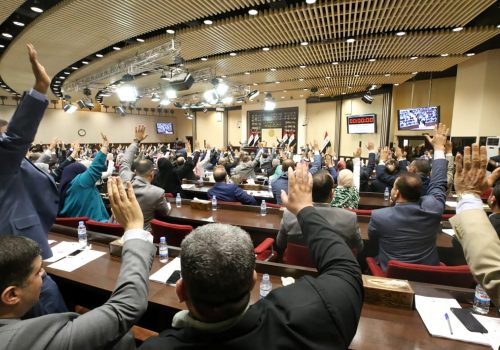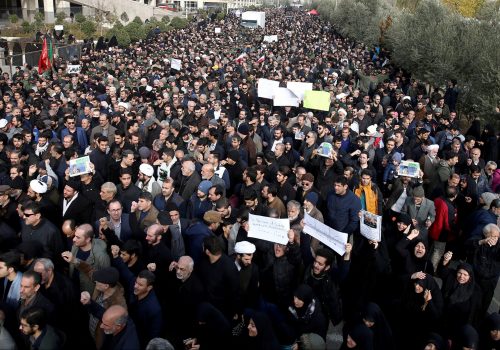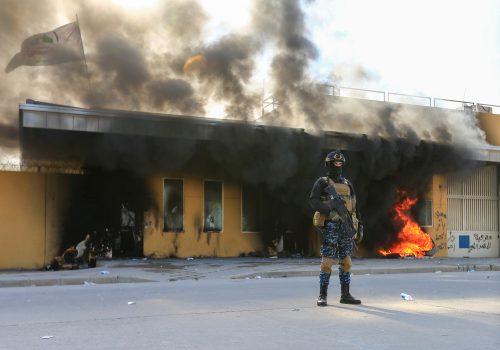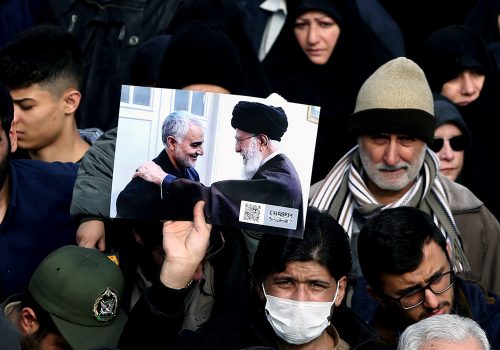Repercussions for Europe after the US targeted attack on Soleimani
Soleimani’s killing came as a kind of strategic surprise in Europe. The general assumption was that the Americans could have had many other opportunities to launch an operation against their arch-enemy in the region. They never executed such an operation (or let Israel do it) because they repeatedly made the calculation that the cost would be higher than the benefit. It is fair to say that broadly speaking, seen from Europe, this is probably still the case, as taking out the head of the Iranian Revolutionary Guard Corps-Quds Force (IRGC-QF) could mean the end of the Joint Comprehensive Plan of Action (JCPOA), general chaos in the region, and more precisely the end of US presence in Iraq which amounts to the end of the coalition against the Islamic State (ISIS/Daesh). For Paris in particular, the last point is the most worrisome. French authorities continue to attach the highest priority to the fight against Daesh.
In a way, they are the last to think in those terms when Russia and Turkey, America, Israel, and Iran are now pursuing their regional wars; putting aside the war against Daesh. It is illustrative that in his telephone conversation with Putin, French President Emmanuel Macron made the point of “de-escalation” and in his talk with Secretary Pompeo Minister Le Drian insisted on the need to maintain the coalition against Daesh.
Now, if one where to look at the last development within another prism, the fact is that US President Donald J. Trump faced a credibility problem. He looked more and more like a paper tiger. The deterrence balance between Iran and the US has been broken since the lack of American response to the downing of the American drone and since then the lack of decisive response to the September 14 attack against Saudi Arabia. The result was various attacks by pro-Iran militias in Iraq on US military installations since October, culminating with the loss of an American citizen on December 27.
Washington had to make the point that Amerian interests will be off limits for Iranian actions. That was done on December 29 with an American bombing of several positions held by pro-Iranian militias, specially Kataeb Hezbollah. Officially, twenty-five militiamen were killed. Things could have stopped there without the leaders of pro-Iran militias organizing the storm against the American embassy in Baghdad. This was a step too far and convinced President Trump that he had not done enough to re-establish deterrence with Iran.
Now, of course, the question is how will the Iranian leadership adapt to the new situation created by the US going after one of the most prominent personalities of the Iranian system? One probably has to distinguish short term moves and long-term new strategy.
In the short term, one may of course forget the JCPOA. Tehran will certainly announce fresh violations of the plan, still bigger than anticipated for next week. Two points are more sensitive and more important. First, Iran and its friends will try everything possible to push the American troops into leaving Iraq. That is the most deliverable immediate way to compensate and avenge Soleimani’s loss. And this is where the French and others are right to be concerned. Second, if Trump was able to “reset deterrence” around American interests in the Middle-East, this is not yet true for the allies of America in the region. Those allies are vulnerable to new attacks of the kind of the September 14 operation.
In the long run, well, nobody really knows what will happen. What we can be sure of, is the following: if the Iranian leadership is able in the next few months to win on Iraq and in the Gulf, they will feel emboldened to stick to a prolonged hybrid war against the United States. If not, they will have to reconsider their options, given their huge economic weaknesses, and the erosion of their legitimacy with their own population as well as in the eyes of the people of the region.
Ambassador Michel Duclos is senior advisor to the Institut Montaigne and a nonresident senior fellow at the Atlantic Council’s Rafik Hariri Center for the Middle East. He formerly served as French Ambassador to Syria and has held a number of senior diplomatic positions throughout his career. He is the author of “La Longue Nuit Syrienne” ( éditions de l’Observatoire).
Related Content
Image: Undated photo of Iranian general Qassem Soleimani, the powerful head of Iran's Quds Force, in the area of Aleppo, Syria. He was killed in an airstrike at Baghdad International Airport, on January 2, 2020. Photo by Balkis Press/ABACAPRESS.COM



